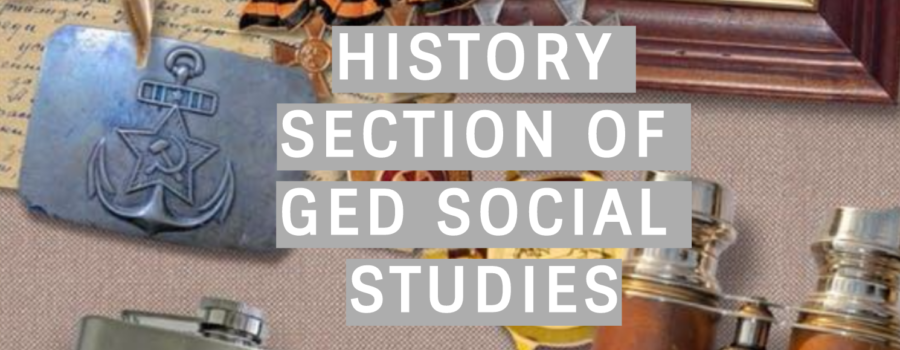Among the most important units found in GED social studies is history. It is divided into different areas including world history. Here, the history of the world is given much prominence beginning from the early civilization of the twentieth century and beyond. It touches on the history of world governments from feudalism to the nation-state including the crisis that engulfed the world during the world war period. It also highlights the revolutions that the world has undergone through.
World history is a unit that touches on the earliest civilizations ever known to man. It starts from the prehistoric age when man started to move from place to place in search of food, shelter, and protection. This led to the formation of the first cities when man finally decided to settle down. The first city was known as Babylon which was found in Mesopotamia. Here man was ruled by kings under a common law which governed the populace. Another ancient civilization was Egypt which was found along the Nile River. This is the civilization that was known for its pyramids and the pharaohs who ruled over the people. The unit also covers civilizations that spanned the world over including ancient Greece, the Roman empire, the Byzantine empire, the early Asian civilizations among others.
The unit also touches on religions in the world including Islam Christianity, Hinduism, Judaism, and others. It gives a clear picture of the origins of world religions and their effect. The course also delves deeper into the t5he middle ages where the world experienced major upheavals which included systems of governance such as feudalism. These were systems which saw major religious conflicts, especially between Christians and Muslims. The Renaissance period is also covered and represents an era that followed the feudalism period. This was an era that transformed Europe and the world to new realities due to the development of education, science, and technology. This was the era of explorers and knowledge seekers who discovered new lands.
The enlightenment era is also covered here where people now used scientific methods to understand new realities. It was an era where the human mind was used to solve the various problems that man encountered in his life. Other topics that are covered in this unit include the French revolution, the industrial revolution and the dynasties of Asia. the unit also covers past ideological forms of imperialism, communism, fascism and democracy. It tries to compare and contrast these ideological forms as well as give their origins.






